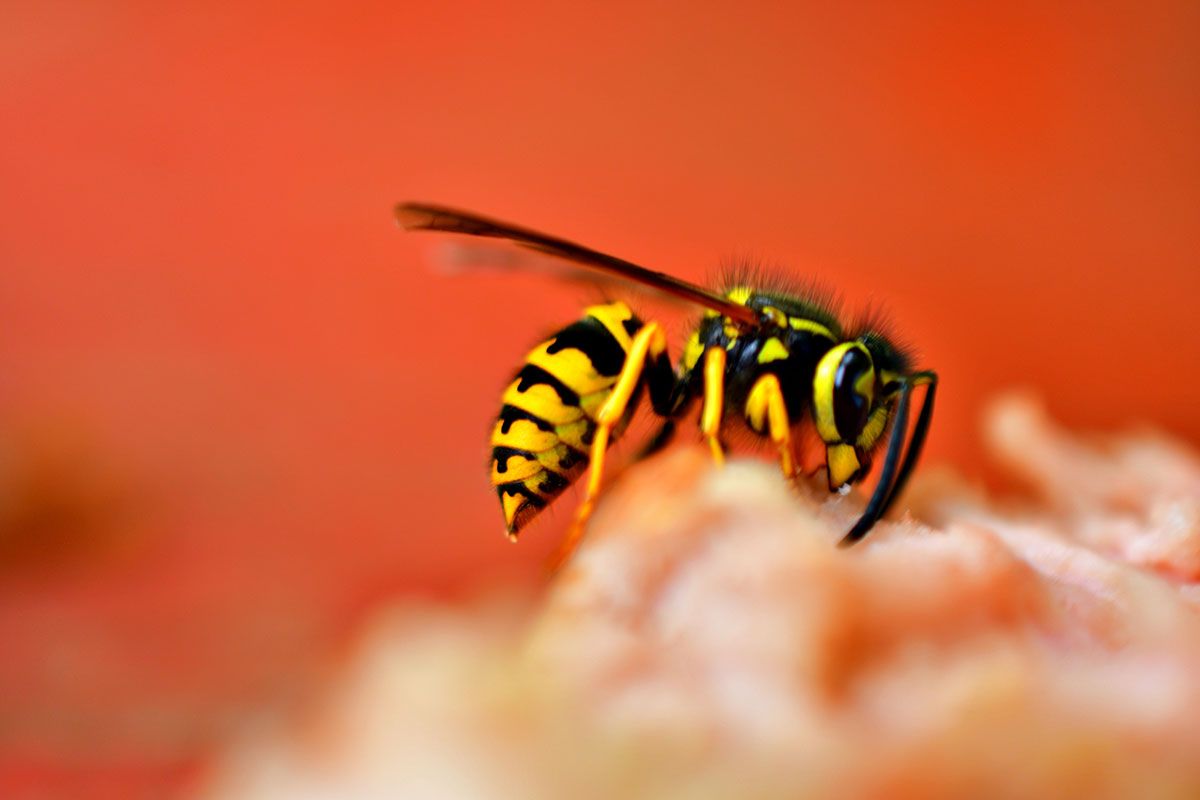Rise of the Wasp: Navigating Late Summer’s Growing Challenge in the UK
As the sun-drenched days of summer gradually give way to the cooler hues of autumn, a new challenge emerges across the United Kingdom – the rise of the wasp population. Late summer has become synonymous with a surge in wasp activity, leading to increased concerns for homeowners, outdoor enthusiasts, and businesses alike. In this article, we delve into why wasp encounters become more prevalent during this time of the year, the reasons behind their growing numbers, and strategies to minimize their impact.

Wasps – The Late Summer Conundrum
Late summer, spanning from August to early September, sees a remarkable uptick in wasp-related issues across the UK. Whether it’s a picnic in the park, a relaxing evening on the patio, or even a casual stroll through the garden, wasps have a knack for making their presence known. Their insistent buzzing, scavenging behaviour, and potential for painful stings (or worse if you are allergic) often result in frustration and concern for those who simply want to enjoy the final days of warmth.
Despite the annoyances they cause us, wasps are actually beneficial, and according to the Natural History Museum, wasps in the UK consume around 14 million kilogrammes of insect prey, such as caterpillars and greenfly!
Factors Behind the Surge
Several factors contribute to the rise of wasp activity during late summer:
1. Food Scarcity: As the summer season wanes, many of the natural food sources for wasps begin to dwindle. Nectar, their primary sustenance, becomes scarcer as flowers begin to fade. This scarcity drives wasps to seek alternative sources of nutrition, often leading them to sweet foods and beverages that humans enjoy.
2. Nest Maturity: Wasps establish their colonies in the early months of summer. By late summer, these colonies have matured and expanded significantly. This growth leads to higher demand for food to sustain the growing population within the nest.
3. Seasonal Change: The transition from summer to autumn signals to wasps that the colder months are approaching. This prompts them to intensify their search for nourishment to prepare for the winter hibernation period.
Minimizing the Impact
While wasps play a role in ecosystems as pollinators and predators of other insects, their presence can understandably cause discomfort and pose health risks due to their sting. To minimize their impact during late summer, consider these strategies:
1. Maintain Cleanliness: Wasps are attracted to food and drink residues. Keep outdoor spaces tidy and promptly clean up spills to reduce their attraction.
2. Secure Waste: Make sure rubbish bins have tightly sealed lids, and consider using wasp-proof containers to prevent these insects from accessing discarded food.
3. Use Traps: Commercial wasp traps can help capture and reduce the local population. Place them away from where you and your guests congregate.
4. Avoid Swatting: Quick movements and swatting can agitate wasps, increasing the likelihood of stings. Once a wasp does sting, pheromones are released, which attracts more wasps! It is always best to stay calm and move slowly when a wasp is nearby.
5. Seal up cracks and holes in your home: If wasps are becoming a problem within your home, make sure you seal up any cracks or holes, and any gaps around doors and windows. It might also be worthwhile checking your loft hatch for gaps, and exploring the loft in case a nest has been created there.
6. Professional Assistance: If you’re facing a particularly severe infestation or have concerns about wasp nests on your property, seek assistance from pest control professionals who can safely remove nests and offer expert advice. Infinity ProServ‘s pest controllers can assist you in supplying traps and giving advice on avoiding infestation, as well as removing nests if they are found.
The Final Sting in the Tail!
Late summer may herald the rise of wasp activity, but armed with the knowledge of their behaviour and the appropriate strategies to mitigate their impact, you can still enjoy the outdoors without undue worry. By understanding the reasons behind their surge in numbers, practicing good sanitation habits, and employing preventative measures, you can ensure a more pleasant transition from summer to autumn, free from the constant buzz of these industrious insects.
Contact Us